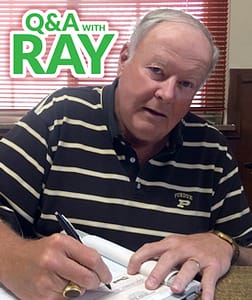Sunday, November 24th, 2024
Ask the plumber: Your frequently asked questions about grease traps answered

Grease traps are a vital part of any restaurant’s plumbing system. They prevent grease, oils, and food solids from entering the city’s wastewater system, which can lead to severe blockages. Still, grease trap maintenance is often confusing, especially for restaurant owners considering cleaning the trap themselves.
To help take the guesswork out of grease trap cleaning, we’re answering some of the most common questions we receive from Cincinnati area restaurant owners.
Can I clean my restaurant’s grease trap without hiring a plumber?
It’s not recommended and very difficult. Grease traps can hold a large amount of waste; without the proper tools and knowledge, you might risk creating more problems. Cleaning involves removing and disposing of thick, greasy sludge, which can be messy and potentially harmful to your health. In addition, if you don’t clean it correctly, you might miss some areas and risk causing clogs or odors. A professional plumber can ensure the job is done correctly and complies with local codes.
How often should I clean my grease trap?
The frequency of grease trap cleaning depends on the trap size and the volume of food waste your restaurant processes. Generally, grease traps should be cleaned every 1 to 3 months. High-volume kitchens may need to clean theirs more often, while smaller operations may get away with cleaning every few months. A clogged or improperly maintained grease trap can lead to backups, foul odors, and even fines from local authorities, so keeping a regular maintenance schedule is crucial.
How often should a grease trap be cleaned?
What happens if I don’t clean my grease trap often enough?
If you don’t clean your grease trap regularly, the grease can build up and clog the system. Over time, this can lead to foul odors, slow drainage, and even complete blockages in your plumbing. Grease can also flow into the city’s sewer system, which can cause costly backups and potential fines for your business. In severe cases, neglected grease traps can result in health violations or the closure of your restaurant until the issue is resolved.
Can I use chemicals to clean my grease trap instead of pumping it?
While some DIYers may be tempted to use harsh chemicals to break down grease, this is generally not recommended. Chemicals can damage your plumbing, contaminate the local water supply, and may not effectively remove thick grease layers or solids. Mechanical pumping and manual cleaning are much more effective for maintaining a healthy grease trap. It’s also important to check with your local environmental regulations before using any chemicals, as certain substances may not be allowed.
5 signs your grease trap needs to be cleaned and pumped or repaired
How can I prevent grease buildup in my trap?
Preventing excessive grease buildup involves training your kitchen staff to scrape plates and pots before washing them and using proper grease disposal methods. Installing grease filters on sinks and dishwashers can also help reduce the amount of grease entering the trap. As mentioned earlier, regular cleaning is the best way to keep things running smoothly.
Do I need a permit to clean my grease trap in Cincinnati?
Cincinnati requires commercial kitchens to maintain their grease traps properly, and the local wastewater authority may conduct inspections to ensure compliance. If you’re hiring a plumber for professional cleaning, they’ll be familiar with the necessary permits and regulations to ensure that the process is done legally and efficiently.
Leave the Mess to the Pros
Cleaning a grease trap is a messy, labor-intensive task that requires proper knowledge, equipment, and disposal practices. At Allied Reddi-Rooter, we’re proud to offer expert grease trap cleaning and maintenance services to restaurants throughout the Cincinnati area. Let us handle the dirty work so you can focus on keeping your business running smoothly. We always come highly recommended and have earned an A+ rating from the Better Business Bureau for our expert quality of service.
